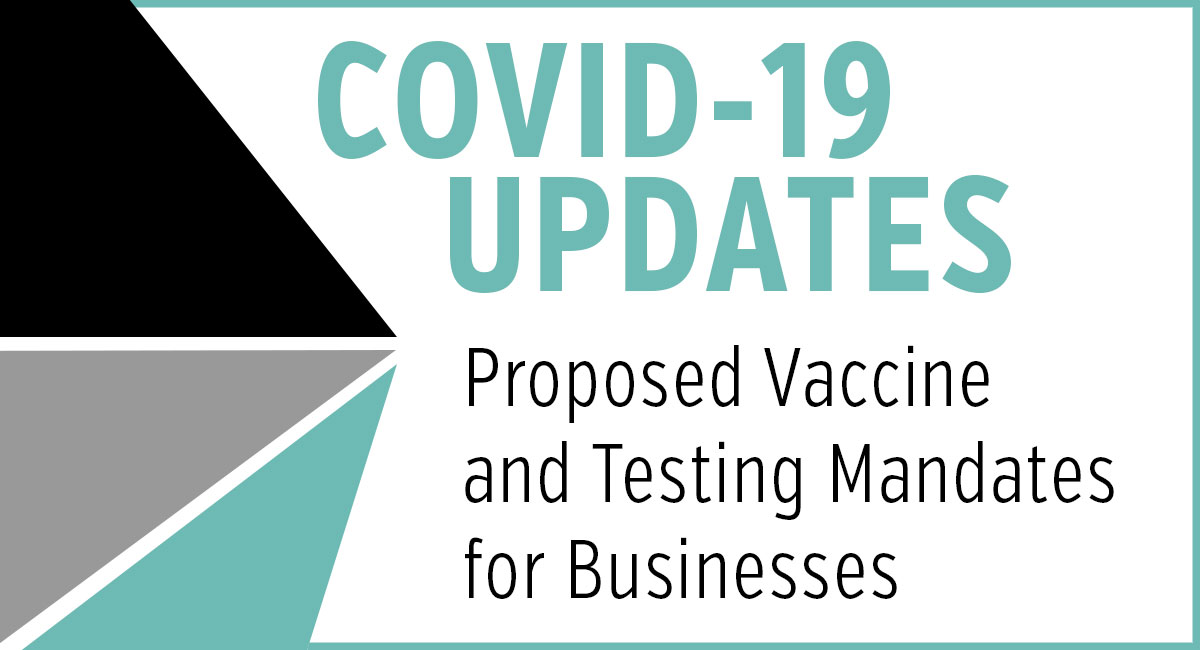Proposed Covid-19 Vaccine and Testing Mandates for Businesses

October 15, 2021 by Keely Knopp
From the Mercy Occupational Medicine October eNewsletter
It’s likely you have heard about the Biden Administration’s proposed COVID-19 vaccine mandate for Federal employees and private companies that employ more than 100 workers. The proposed mandate requires unvaccinated employees to submit a weekly negative COVID-19 test to be eligible to report to work. The administration’s plan, announced on September 9, 2021, is expected to affect more than 80 million workers nationwide.
On October 12, the Occupational Health and Safety Administration (OHSA) submitted the ruling to the White House for final approval. In the coming days, OHSA will be issuing guidance on those mandates to employers via an Emergency Temporary Standard (ETS).
Here is what we know at this time:
- President Biden directed OSHA to issue a mandate for businesses with 100 or more employees requiring their workers to either be vaccinated against COVID-19 or undergo weekly testing.
- OSHA’s mandate will take the form of an ETS—a binding rule that OSHA may enact to protect workers against a “grave danger” in the workplace.
- The ETS will have the force of law, take immediate effect, and last for six months, unless superseded by a permanent regulation.
- The ETS will likely have only two exceptions: (1) a religious exemption for sincerely held religious beliefs (social and political beliefs do not qualify); and (2) medical contraindications. These exceptions will likely only apply to the vaccine mandate and not the weekly testing mandate. It remains unclear what exceptions, if any, will be made for individuals who work remotely.
- Employers that don’t comply with the vaccine mandate or ETS requirements may face fines of up to $14,000 per violation.
- Lawsuits are expected from state governments and large employers.
Currently, it remains unclear how the 100-employee count will be measured and who would be responsible to pay for the weekly COVID-19 tests. In the event OSHA requires the employer to cover the initial cost, it is unknown if subsequent costs can be passed onto the unvaccinated employee.
Whatever the final language of the ETS ends up being, it is advisable for larger employers—at or close to the 100-employee threshold—to begin planning for these types of binding regulations from OSHA and formulating actionable strategies to handle vaccination mandates and testing requirements for their employees.
Mercy Urgent Care is here to help local businesses with the testing requirements when those regulations become effective. If you would like to discuss COVID-19 testing for your business, please contact Mercy Occupational Medicine.

